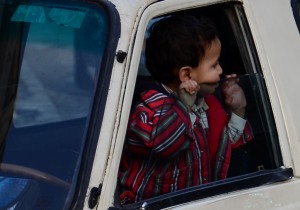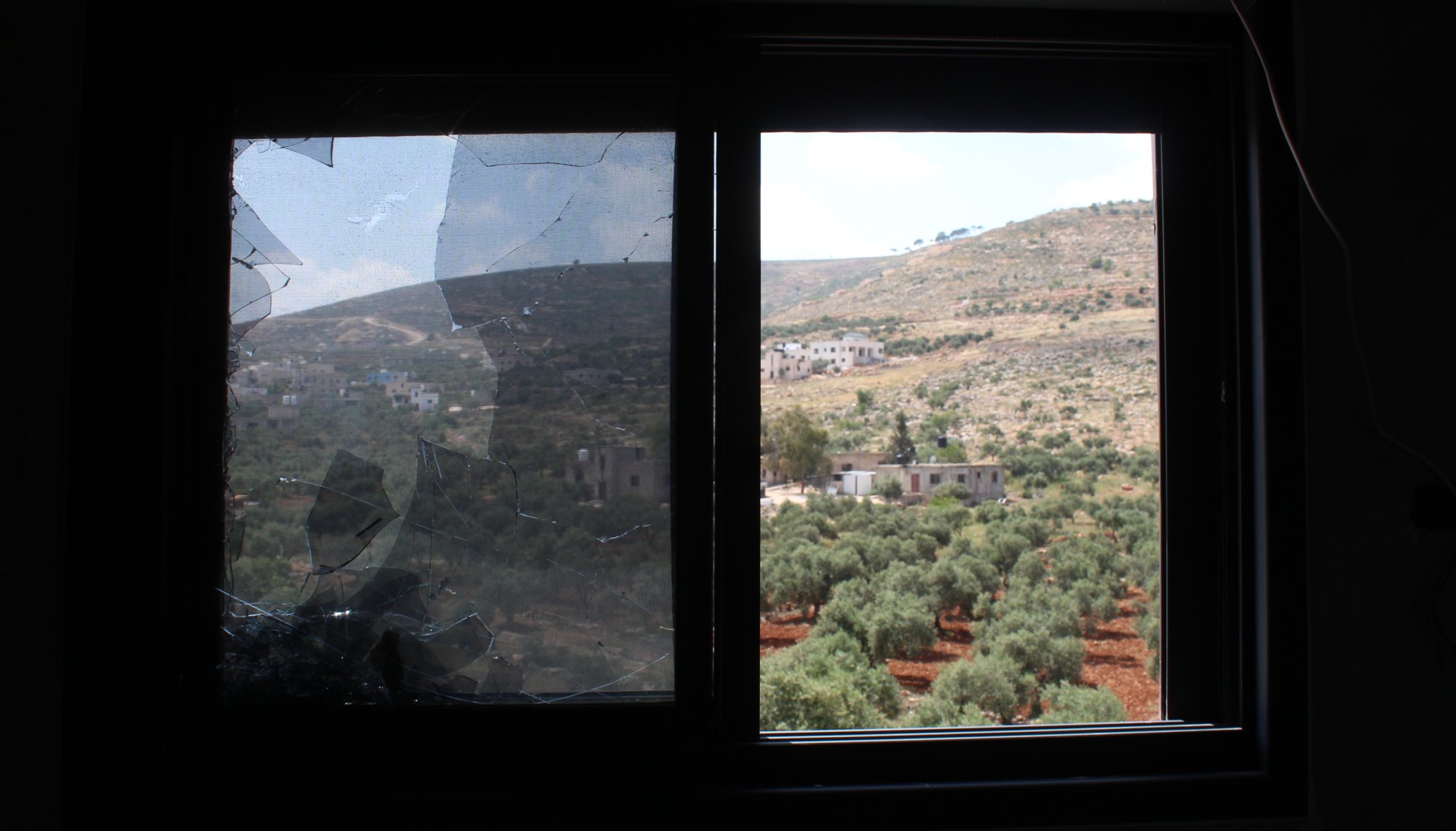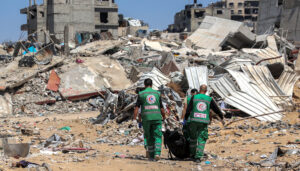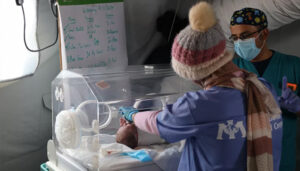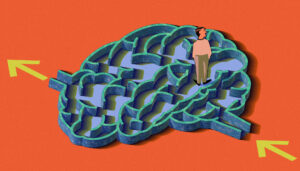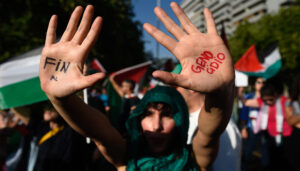Jordan was recently shocked by the BBC/AmmanNet undercover report on child maltreatment taking place in a number of private care homes for children with special needs. The stories and the videos shown were absolutely heart wrenching, and one wondered what kind of people would treat and permit this kind of treatment of innocent children, who in this particular case were in need of extra care and attention.
People were outraged and the news spread like fire on Facebook and other social media sites. Newspapers talked about high ranking officials giving priority to this matter. An investigation took place and a number of these homes were or will be closed. End of problem? We wish.
Although media reports that uncover such stories are important and the effort done is definitely admirable, people’s exposure to such an important issue remains minimal. What people get when watching these reports is that there’s a serious problem that I as an individual can do nothing about, that is happening in one particular place, by people alien to this society, people we don’t know and can never be friends with; while the truth is that this incident is only a reflection of what’s going on in the community in general and these people are actually regular people we know and live amongst. By the time or even before this article is published, the story will be forgotten.
I am by no means belittling the effort of news media, nor am I defending anyone. But if we are serious about pushing for change, we should start thinking about social problems in a different way. We should stop assuming that these are isolated incidents carried out by evil people.
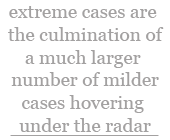 It is important to be exposed to such extreme cases, but we shouldn’t stop at that. Raising awareness should include the whole problem in its social context. Extreme cases do not materialize from nowhere. They are the culmination of a much larger number of milder cases that are hovering under the radar, brewing and multiplying in a culture that condones violence against children.
It is important to be exposed to such extreme cases, but we shouldn’t stop at that. Raising awareness should include the whole problem in its social context. Extreme cases do not materialize from nowhere. They are the culmination of a much larger number of milder cases that are hovering under the radar, brewing and multiplying in a culture that condones violence against children.
It is very important to dig deep and think about root causes, to discover why such social problems exist. It is easy to judge and punish when we should be thinking about the reasons behind such behavior against innocent children, in order to push for change that lasts.
What is happening now, and should be happening, is that perpetrators who are discovered and incriminated of such behavior are punished by law. Having strict laws against child maltreatment is important but unfortunately it’s not enough to prevent it from happening.
In Jordan, using physical punishment to discipline children at schools, for example, is banned by law, and yet from time to time we hear about a young student hospitalized after being beaten by a teacher. This naturally implies that physical maltreatment is a widespread problem at schools and only extreme cases make it to public attention, and we have the numbers to prove that.
In Jordan, parents are given permission, by law, to physically punish their children (Article 62 of the Jordanian Penal Code) when it’s even harder to discover cases of child maltreatment which take place at home, and when it’s well known that most cases of child physical abuse result from physical disciplinary episodes gone out of control.
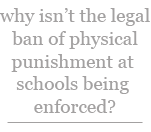 Why isn’t the legal ban of physical punishment at schools being enforced? And why don’t we have a law that prevents physical punishment of children at home in the first place? Because we live in a culture that thinks that violence against children is acceptable, even needed for proper upbringing and discipline, and that children are not whole human beings who deserve to have the same basic human right as adults, not to mention the extra care needed for them because they are small and vulnerable.
Why isn’t the legal ban of physical punishment at schools being enforced? And why don’t we have a law that prevents physical punishment of children at home in the first place? Because we live in a culture that thinks that violence against children is acceptable, even needed for proper upbringing and discipline, and that children are not whole human beings who deserve to have the same basic human right as adults, not to mention the extra care needed for them because they are small and vulnerable.
Investigating the root causes of the problem and looking deep into how people think is important in diagnosing the problem, finding alternatives and shifting such cultural and social norms. Changing laws is important but it should come as a result of social pressure; when people believe that such a phenomenon isn’t a part of who we are or how we think anymore and should be changed. In this case the law will come as a natural result of that evolution and will serve as an affirmation and educational tool for the public to know their rights, instead of being something imposed which the community will inevitably find a way around.
All of us are familiar with the phrase “prevention is better than cure” to the extent that we don’t really think about it anymore. But it is. In the case of child maltreatment it’s not only important for the sake of sparing children from abuse and the traumatic process of rehabilitation that comes afterwards, but because it’s well known all around the world that all cases discovered, whether through social workers, self report or otherwise are only the tip of the iceberg, and most cases will go undetected without any protection or rehabilitation.
Prevention IS the cure for the rest of the iceberg.
—
*Rula Al-HIyari is a public health professional specialized in child health and protection. She had ten years of experience in the medical field before receiving a Hubert Humphrey fellowship from Tulane University School of Public Health and Tropical Medicine, USA.
